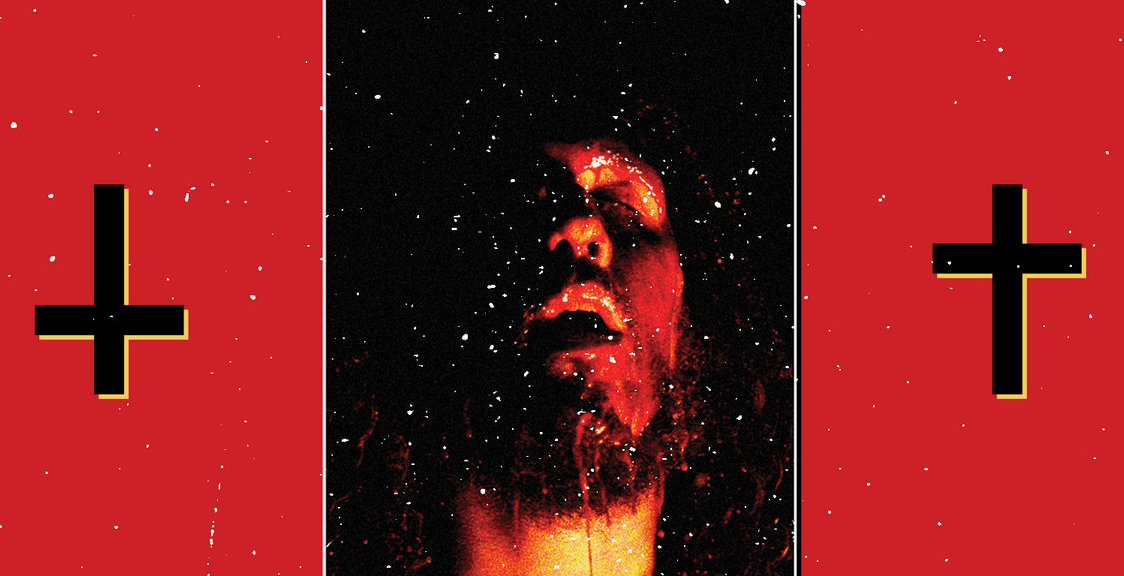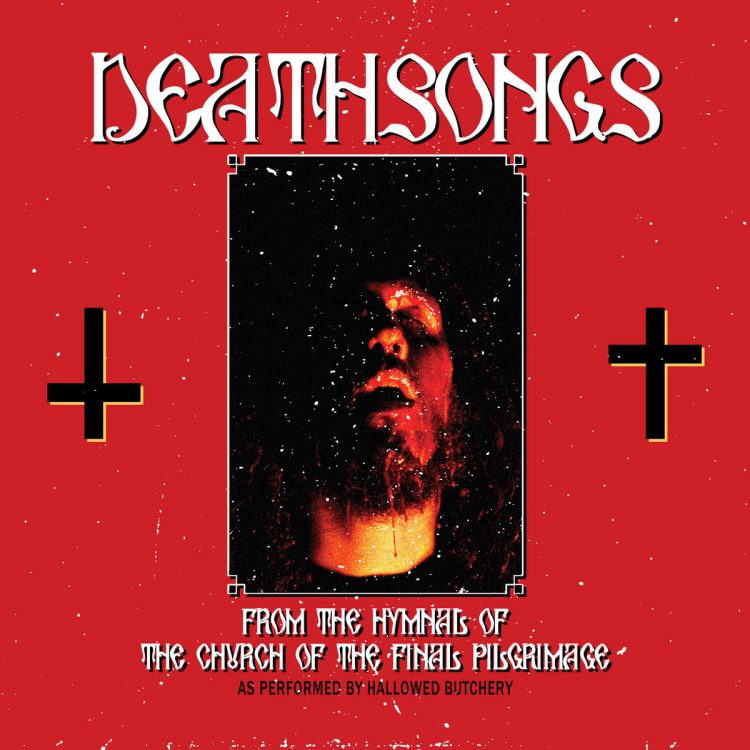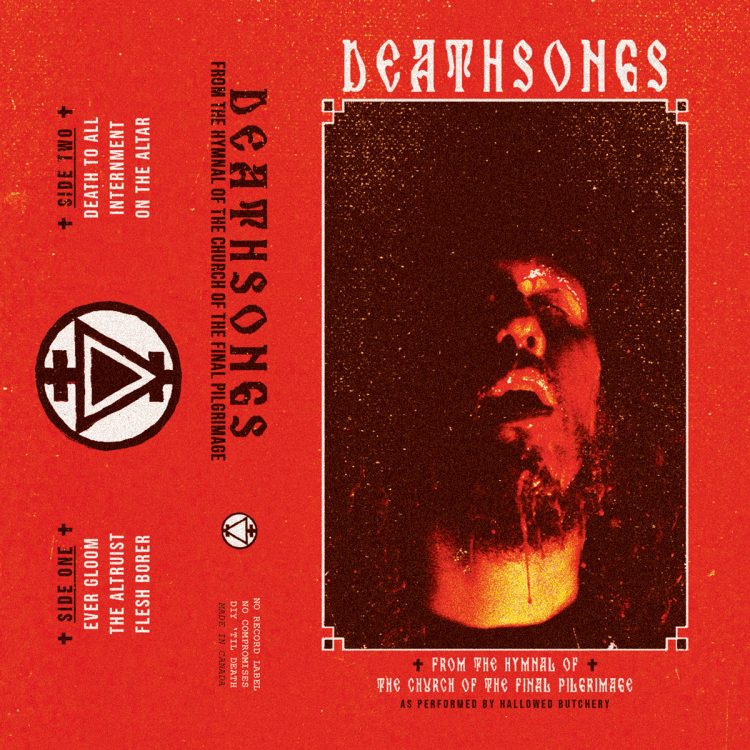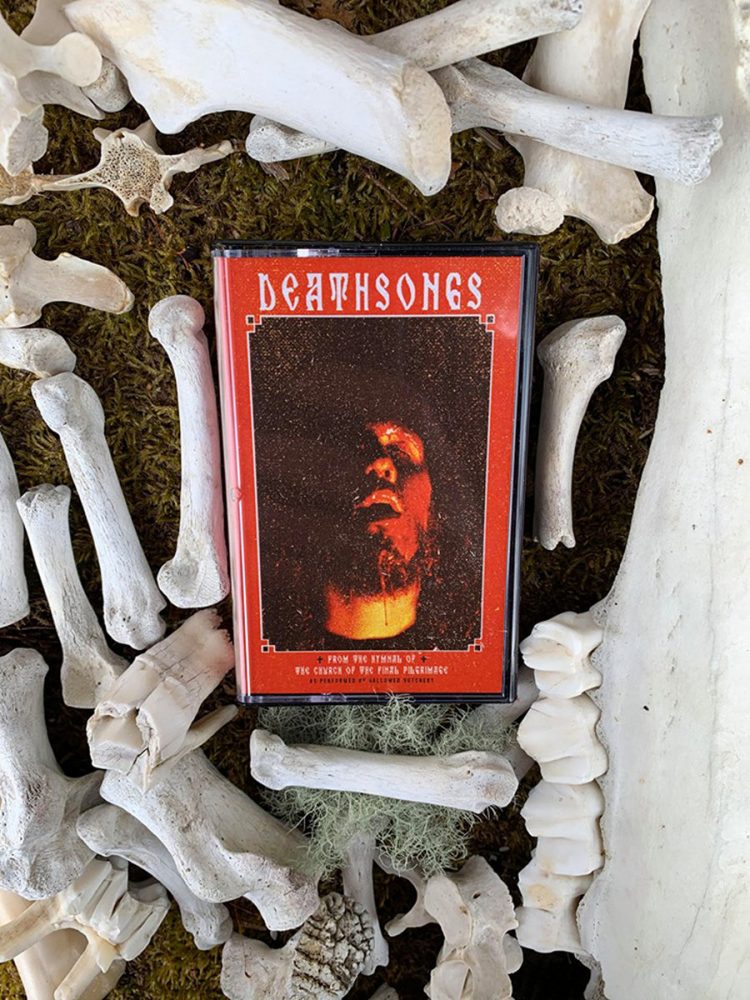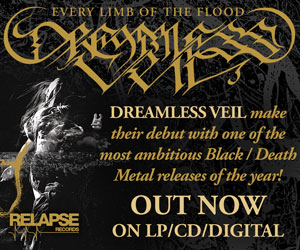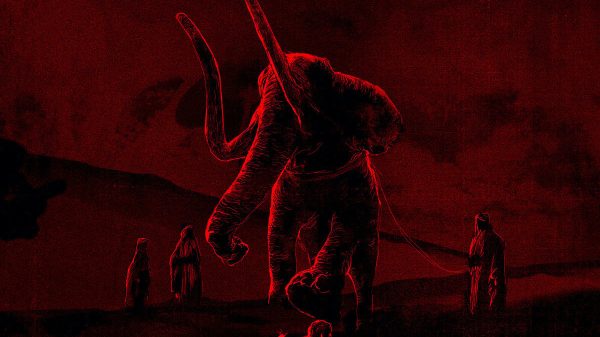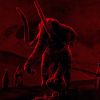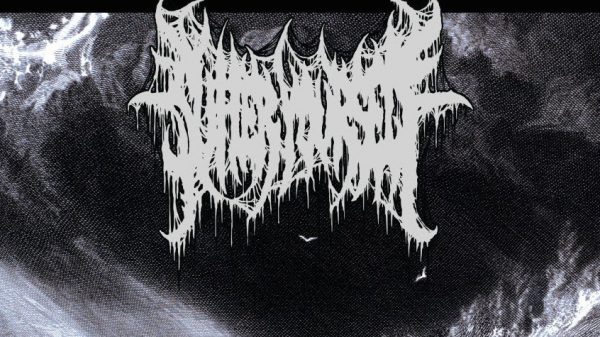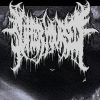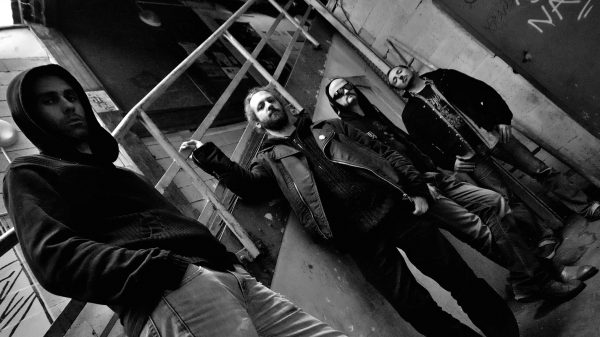“Death is the one true reality, and when we embrace that fact, we begin to live fully for the first time.” Speaking these words into the frenzied state of our world, where we’re asked to live in a perpetual state of fear not just of our own death, but of others’ death, seems like lunacy. How strange is it to think that we all will die, not one of us will live forever, but the majority of our energy in life is put towards staving off death? What if death was something we accepted as inevitable, and we celebrated our release from our bodies instead of feared it? It’s hard to comprehend in my survival-oriented monkey brain. HALLOWED BUTCHERY, the solo industrial doom project of Ryan Scott Fairfield, has a fascinating backstory for his death worship. He wrote his 2020 limited cassette release Deathsongs From The Hymnal Of The Church Of The Final Pilgrimage as an ode to the teachings of The Church of the Final Pilgrimage, a death cult led by Jonathan Curless. From his time spent with them, he drew upon the wisdom of the worship of death, and with this bone-shattering release, he asks us to look beyond our physical limitations. Now he’s re-releasing a mastered version of Deathsongs From The Hymnal Of The Church Of The Final Pilgrimage that comes out on CD via Aesthetic Death Records and cassette on Death Scream Recordings today – get it here! Right now, listen to the full remastered version below…
We have spent the last year of our collective lives in fear of death. There has been a pervasive worry; the dread of dissolution has been inescapable. It has altered our society and forever changed the way that we live. For better or for worse.
This album stands in defiance of that fear. It is a celebration of our mortality — quite literally, it is a collection of hymns that focus on the worship of death, rather than the fear of it. Death is the one true reality, and when we embrace that fact, we begin to live fully for the first time.
—-ABOUT THE CHURCH OF THE FINAL PILGRIMAGE—-
Deep in the remote woods of rural Maine, there resides the sole members of a largely unknown religious group named The Church of the Final Pilgrimage. Unlike most sects, the members of the group do not worship a deity but rather they devote their lives to the worship of death. Death is their god.
The Church’s membership consists of thirty people: ten adults, three teenagers, and seventeen young children. They live and worship together within the walls of their Maine-based compound. Within the compound, there are no modern amenities – no running water, electricity, or gas-powered automobiles. They live a simple, self-subsistent existence.
The group’s leader, 68-year-old founder Jonathan Curless, is also the author of The Church’s sacred text: The Consecrated Tenets of The Church of the Final Pilgrimage. A copy of the text has been included with this album. It has been altered aesthetically but the text is in-tact.
I obtained a copy of their tenets during a 2 week stay in their compound in the summer of 2017. By chance, I had befriended Jonathan Curless while he was proselytizing outside of the compound’s walls. Due to my intense interest in his teachings, he invited me to come and live with him and the church members. I agreed to.
My time there was spent preparing the harvest from their many communal gardens, as well as taking part in a deer hunt using handcrafted weapons. I was also able to attend some of the church’s ceremonies and was made privy to many of Jonathan Curless’s teachings. Jonathan spoke often and at length throughout the day, regardless of the activity, delivering impromptu sermons to all whom were in earshot.
He spoke of the futility of technology and the evils of man, always reassuring everyone that by being there with him, they were on the right path: the Final Pilgrimage. He claimed that those outside of the church were likely to die young due to their life choices or the inverse: they would live far longer than nature intended by utilizing artificial means. He frequently commended the church members for seeing beyond the madness of the modern world.
Nightly the members would build a large fire. The children would gather sticks and firewood, while the women prepared the evening’s meal. Wild game was often the protein of choice, but on two occasions during my stay, a suckling pig was slaughtered.
Those two occasions were referred to by the members as Death Ceremonies. Upon spilling the pig’s blood, each member would line up to dip their finger into it. They then would smear the blood across their foreheads and move aside to allow the next person to do the same.
When all had the blood upon their faces, two men would gut the pig, and bring it over to the fire to roast it on a spit. As the flames flicked the carcass, Jonathan Curless would sing a cryptic, chant-like hymn. The other members joined in shortly after and as they began to sing, they also would dance around the fire. There was no unison to the dancing. All danced in their own way. However, over and over again, they sang these words together:
“All I do I do out of love. Slit her guts for the god above. Push her face down. Drowning in her own blood. All I do I do out of love.”
When the pig was fully roasted, the singing and dancing ceased, and we all sat down together to feast.
To the uninitiated this bizarre ritual would seem more like a morbid rite rather than worship. To Jonathan it was an act of love. He was adamant that modern society had lost its reverence for death and had replaced it with fear. “People are scared of the grave and therefore they refuse to face it,” he said.
He continued: “They package their meats up in plastic, mentally separating the living animal from the dead flesh. They frequent churches where the preachers assure them that there is an afterlife waiting for them when they die. They alter their faces and their bodies in an attempt to stay young. When death comes knocking they fight it off with medicine.”
“They’re always running from the one true reality. The one true reality is death.”
Admittedly, I never had any intentions of permanently settling within the walls of the compound. I believe Jonathan thought the opposite. Therefore, when I left, I assured him that I was only heading home to gather up my wife, children, and a few belongings, and that I would return soon after.
I never returned.
Instead I took what I witnessed and learned and wrote an album dedicated to my time there: “Deathsongs from the Hymnal of the Church of the Final Pilgrimage”
